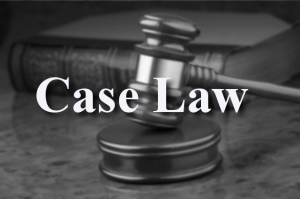 We have spoken at great lengths as to the importance of fair procedures when effecting a dismissal. Be it for redundancy, conduct or capability reasons an employer must follow fair procedures with their employees and in disciplinary matters follow the rules of natural justice (notice of hearings, right to representation, details of evidence, witness statements provided, and then finally the right to appeal any decision).
We have spoken at great lengths as to the importance of fair procedures when effecting a dismissal. Be it for redundancy, conduct or capability reasons an employer must follow fair procedures with their employees and in disciplinary matters follow the rules of natural justice (notice of hearings, right to representation, details of evidence, witness statements provided, and then finally the right to appeal any decision).
However every so often we come across a case where a Tribunal has outlined that the procedures used by the employer were flawed, yet still finds that the employees claim for unfair dismissal fails.
This presents a serious problem for employers as they are unsure of what evidence to rely on and what procedures to follow if they wish to dismiss. In this case (UD1314/2011) the employee was employed by a Management Company since 2007 as a Security Guard at a Shopping Center. The employee was accused of verbally abusing another tenant in the center and was suspended with pay pending the disciplinary hearing. It was alleged that the employee was making threatening comments at the tenant and it reflected poorly on the Company.
The Company had come to the decision prior to any hearing and did no need to rely on CCTV evidence, as they had typed up the letter to dismiss prior to the meeting. The employee did not appeal the initial decision as they felt that the contact person was involved in the original process.
We have seen previous cases where decisions were made in favour of the employee based on the flaws above (predetermined decision & no valid appeals person) however in this case the Tribunal took the view that as the employees behaviour warranted dismissal it was enough to overshadow the deficiencies in the process.
Do I need to Follow Fair Procedures?
An employee should still follow fair procedures as there is a plethora of case decisions where employees have had their claims upheld as there was a flaw in the procedures, however claims such as this are unhelpful to employers, as perhaps there is a very specific reason they decided to find in the employers favour in this case (perhaps given the seriousness of the incident, threatening and abusive behaviour should not be tolerated) but nonetheless it is unhelpful to employers looking for a roadmap of how to deal with certain incidents in the workplace.
